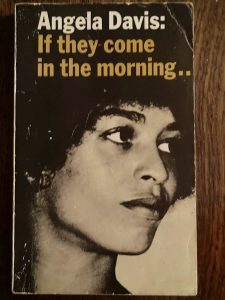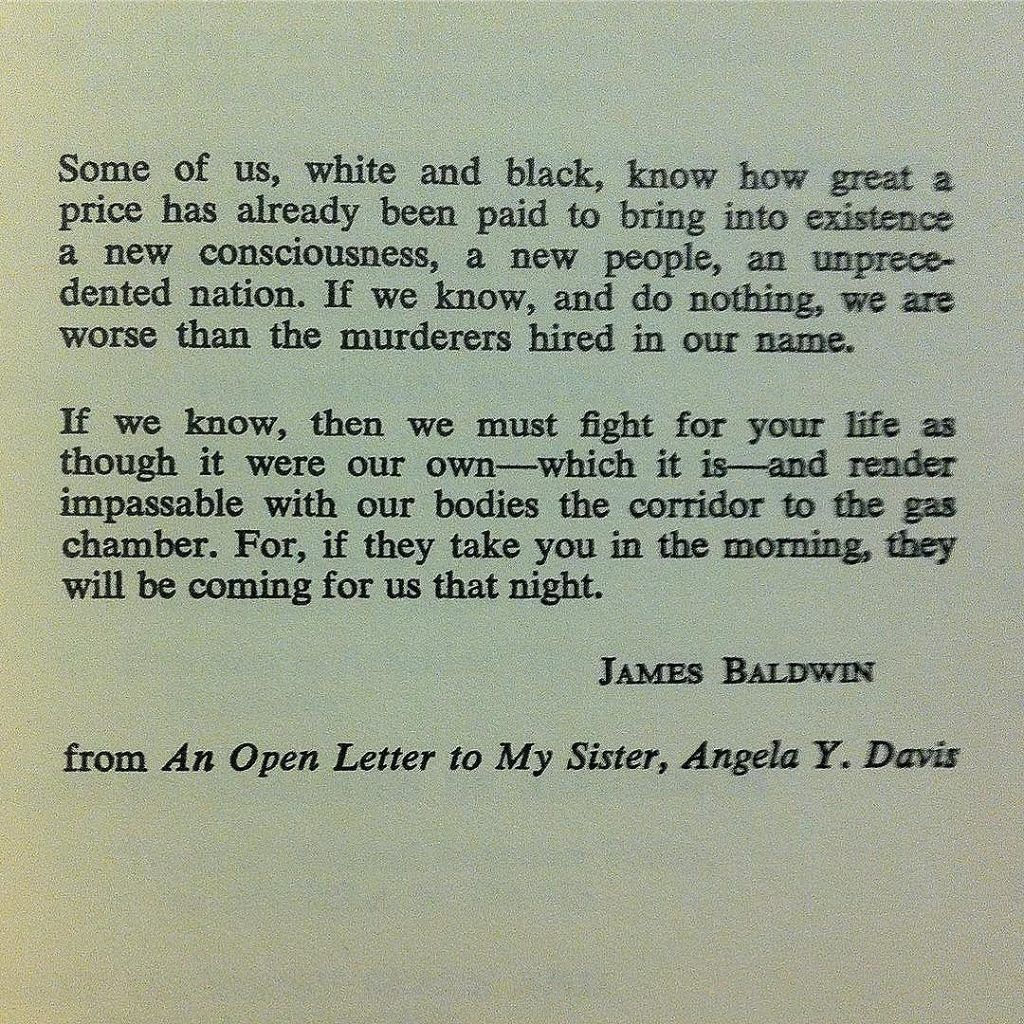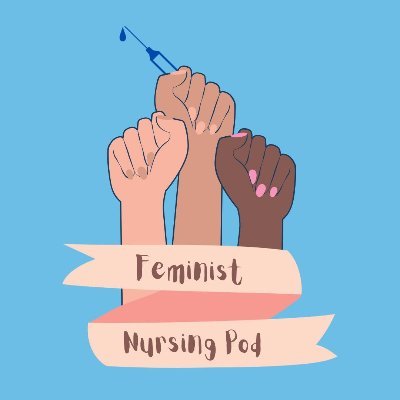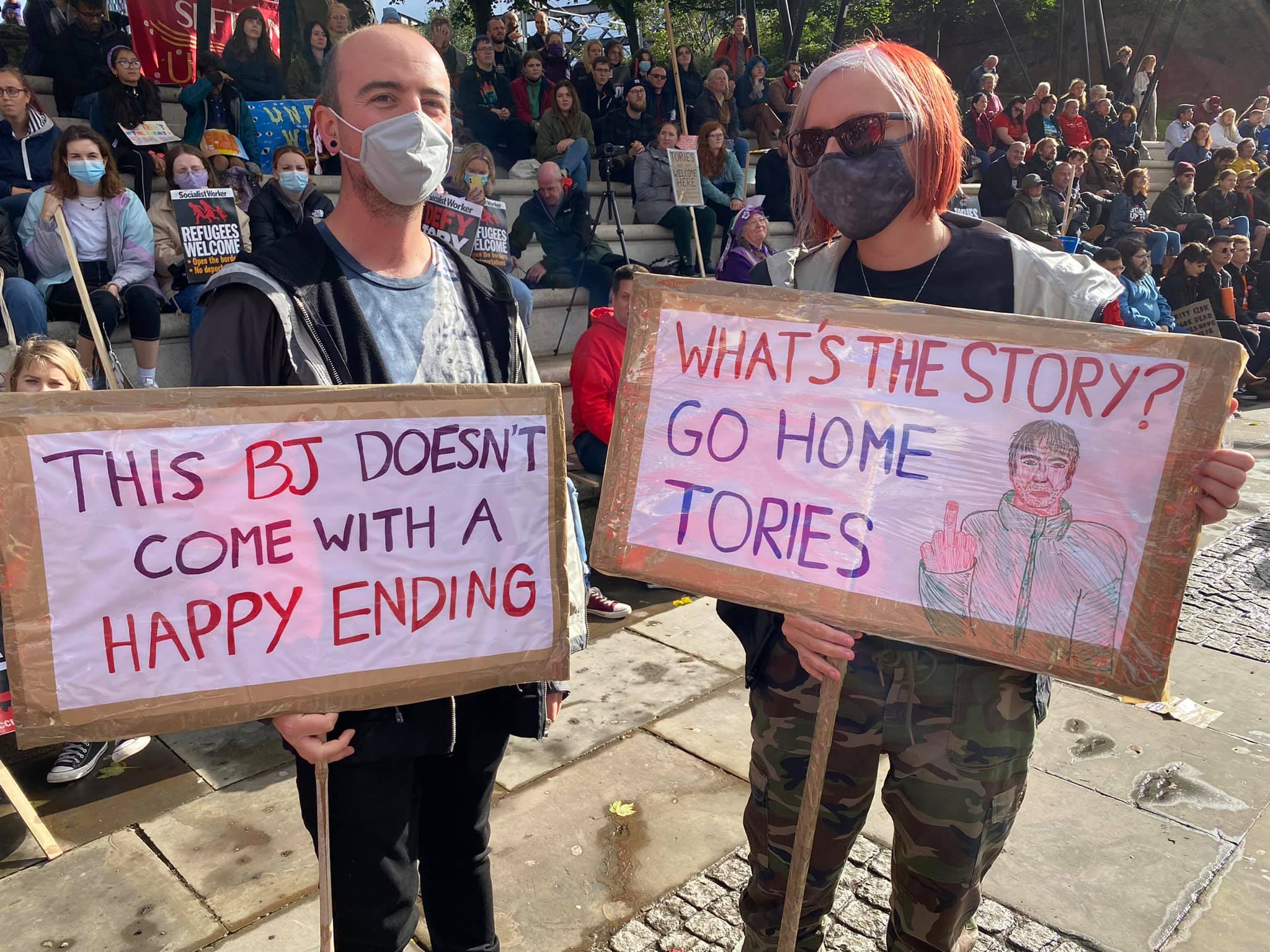“If they come in the morning….”
Dedicated to George Floyd
by Julius Marstrand
“One might have hoped that, by this hour, the very sight of chains on Black flesh, or the very sight of chains, would be so intolerable a sight for the American people, and so unbearable a memory, that they would themselves spontaneously rise up and strike off the manacles. But no, they appear to glory in their chains. Now, more than ever they appear to measure their safety in chains and corpses. And so, Newsweek, civilized defender of the indefensible, attempts to drown you in a sea of crocodile tears (‘it remained to be seen what sort of personal liberation she had achieved’) and puts you on its cover, chained.”
“You look exceedingly alone – as alone, say, as the Jewish housewife in the boxcar headed for Dachau, or as any one of our ancestors, chained together in the name of Jesus, headed for a Christian land.”
These powerful words are not mine. They were penned by one of the greatest American authors of the latter part of the twentieth century – James Baldwin – in ‘an open letter to Angela Davis’ on November 19, 1970.
So, who was Angela Davis?
Why did she command so much respect from James Baldwin? Why did a Black American, Woman and Communist become such a cause célèbre in the anti-communist hysteria of Reagan’s California?
Angela Yvonne Davis was born to an African American family in Birmingham, Alabama on January 26, 1944. She studied French at Brandeis University and obtained a BA, before going on to study Philosophy at theUniversity of Frankfurt, West Germany. There she studied under the philosopher Herbert Marcuse, a prominent figure in the Frankfurt School of Marxism. Davis became increasingly interested in left-wing politics.
Marcuse took a position at the University of California, San Diego and Davis followed him there after her two years in Frankfurt. She obtained an MA, before moving to East Germany, where she gained a Doctorate from the Humbolt University of Berlin.
Back in the USA again she joined the Communist Party and as a Marxist feminist got involved in a range of progressive causes, including the second-wave feminist movement, the Black Panther Party, and the campaign against the Vietnam war.
In 1969 she was appointed as an acting assistant Professor of Philosophy at the University of California, Los Angeles (UCLA). This enraged the right-wing Governor of California, Ronald Reagan, who was keen to purge left-wing teachers and professors from the Californian education system. People may remember his famous “reds under the beds” speech. He exerted political pressure on the governing Board of Regents of UCLA and forced them to fire her, “due to her Communist Party membership”.
After a court ruled this dismissal was unlawful she was re-instated, but the Regents of the UCLA started monitoring her speeches. The Regents cited as “evidence of her unsuitability to continue teaching” a speech in which she declared it was necessary “to unveil the predominant, oppressive ideas and acts of this country” and “to begin to develop not only criticism but positive solutions and to carry out these paths in the universities. Otherwise academic freedom is a real farce.” This was considered such ‘inflammatory language’ she was dismissed again.
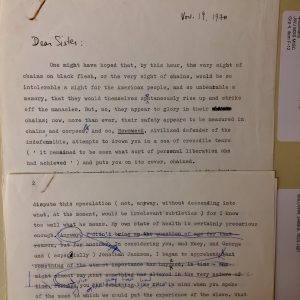
During this politically motivated persecution, emboldened by the right-wing rhetoric of Ronald Reagan, Angela Davis was subjected to continuous abuse and death threats from right-wing and racist extremists. In America, where a high proportion of the far-right are gun-owning supporters of ‘the right to bear arms’, this was an even bigger threat than in the UK, so she was obliged to employ a bodyguard and guns for her own protection.
The Soledad Brothers :
Under the American penal system many prisoners, especially Black prisoners, are sentenced to ‘indefinite sentences’, which means they often spend far longer in prison than their crimes would normally warrant.
In 1963 a fourteen-year-old Black boy. W L Nolan, was convicted of robbery. He was incarcerated in Soledad Prison. In 1969, at the age of twenty. he began circulating a petition against the prison’s Superintendent, Cletus J. Fitzharris, charging that guards and officials at the facility knew of “existing social and racial conflicts” and that they had been seeking to excite them through “direct harassment and in ways not actionable in court”, including the filing of false disciplinary reports and intentionally leaving black inmates’ cells unlocked to put them in danger of assault. He claimed prison wardens were “wilfully creating and maintaining situations that creates and poses dangers to the plaintiff (himself) and that he “feared for his life”.
George Jackson met W.L. Nolen through the Black Panther Party in Soledad State Prison in 1969. They were transferred together to the O Wing, along with Drumgo and Clutchette, which was considered the worst part of the adjustment center of which Max Row is a part. According to Jackson, in the O Wing “the strongest hold out no more than a couple of weeks. It destroys the logical processes of the mind, a man’s thoughts become completely disorganized. The noise, madness streaming from every throat, frustrated sounds from the bars, metallic sounds from the walls, the steel trays, the iron beds bolted to the wall, the hollow sounds from a cast-iron sink or toilet. The smells, the human waste thrown at us, unwashed bodies, the rotten food. When a white con leaves here he’s ruined for life. No black leaves Max Row walking. Either he leaves on the meat wagon or he leaves crawling licking at the pig’s feet.”
On January 13, 1970, 14 black inmates and 2 white inmates from the maximum-security section of Soledad Prison were released into a recreation yard. It had been several months since they were last released into the yard. The black prisoners were ordered to the far end of the yard, while the white prisoners remained near the center of the yard. Officer Opie G. Miller, an expertmarksman armed with a rifle, watched over the inmates from a guard tower 13 feet (4 m) above the yard. A fist fight ensued and Miller opened fire on the prisoners below. No warning shot was fired. Three black inmates were killed in the shooting: W.L. Nolen and Cleveland Edwards died in the yard, while Alvin Miller died in the prison hospital a few hours later. A white inmate, Billy D. Harris, was wounded in the groin by Miller’s fourth shot, and ended up losing a testicle. In a letter from June 10, 1970, George Jackson described the scene as seeing three of his brothers having been “murdered […] by a pig shooting from 30 feet above their heads with a military rifle.”
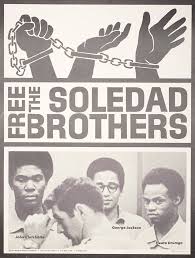
Angela Davis became involved in the campaign for the release of the Soledad Brothers, George Jackson, Fleeta Drumgo, and John Clutchette who were said to have murdered another Prison Warden, Mills, in retaliation for the shooting deaths of three black prisoners during a prison fight in the exercise yard three days prior by another guard, Opie G. Miller.
In August 1970 there was a re-trial of a prisoner in San Quentin Prison, James McClain. In a futile attempt to secure his brother’s release, George Jackson’s youngerbrother Jonathan smuggled guns into the Marin County Court and gave them to James McLain and another inmate of San Quentin, Ruchell Magee. They used them to kidnap the Judge, the Deputy District Attorney and three jurors. The prisoners told the Judge to tell the court guards not to shoot. Despite that, when they tried to drive away they were caught in a hail of gunfire from San Quentin guards and other law enforcement officers. In the firestorm, James McLain, another prisoner they had freed, William Christmas and Jonathan Jackson and the Judge were killed.
Jonathan had taken the guns from Angela Davis house. They were legally registered to her for her protection.Despite not having had any prior knowledge of the crime and not been involved in any way, other than guns being registered in her name being used by Jonathan Jackson, the FBI tried to frame her for three capital felonies, including conspiracy to murder. At that time the death penalty still applied in California. Fearing a judicial murder, she went on the run.
Angela Yvonne Davis was Number One on the FBI’s ‘most wanted’ list of criminals. She was there, precisely because she was a Black, Woman Communist, who posed one of the greatest threats to the corrupt American establishment. After a year on the run and over a year in jail, she was acquitted of the charges in 1972.and eventually acquitted of any crime.
Another quote from James Baldwin’s open letter to Angela Davis: “Political repression in the United States has reached monstrous proportions. Black and Brown peoples especially – victims of the most vicious and calculated forms of class, national and racial oppression – bear the brunt of the repression even as it now engulfs the most presumable respected groups and individuals including members of Congress. Literally tens of thousands of innocent men and women – the overwhelming majority of them poor – fill the jails and prisons; hundreds of thousands more are subjected to police, FBI and military intelligence investigations.”
The International Campaign:
Angela Davis persecution became an international issue.
The first song released in support of her was “Angela”(1971), written by Italian singer-songwriter and musicianVirgilio Savona with his group Quartetto Cetra. He received some anonymous threats. The Rolling Stones song ‘Sweet Black Angel” recorded in 1970 and released on their album ‘Exile on Main Street’ (1972), is dedicated to Davis. It is one of the band’s few overtly political releases.
Bob Dylan’s song ‘George Jackson‘ (1971) is a tribute to one of the Soledad Brothers. John Lennon and Yoko Ono recorded their song ‘Angela’ on their album ‘Some Time in New York City’ (1972) in support, and a small photo of her appears on the album’s cover at the bottom-left. The jazz musician Todd Cochran, also known as Bayete, recorded his song “Free Angela (Thoughts…and all I’ve got to say)” that same year.
Tribe Records co-founder Phil Ranelin released a song dedicated to Davis, titled “Angela’s Dilemma,” on ‘Message From The Tribe’ (1972), a spiritual jazz collectible.
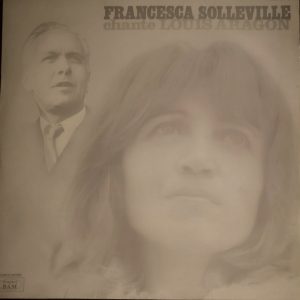
In France the French revolutionary singer Francesca Solleville sang about her.
All over the world Angela Davis Defence Committees were formed. In the UK the ADDC existed from when she was captured until 1975. The National Secretary of ADDC in the UK was the communist and human rights solicitor Michael Seifert.
I was involved in the campaign from early on and, in 1972, when I became President of the Polytechnic of the South Bank Student Union, I became a member of the UK’s national ADDC. The campaign involved holding rallies and meeting up and down the country to raise money for Angela Davis legal defence fund (an early case of ‘crowd funding’).
I met the French singer Francesca Solleville in 1971 at the celebrations to commemorate the 100th Anniversary of the Paris Commune and stayed in her flat in Paris the following year. I still have the LP of her singing songs by Louis Aragon, annotated ‘Pour Julius à bientot Francesca vive le Commune et Angela’.
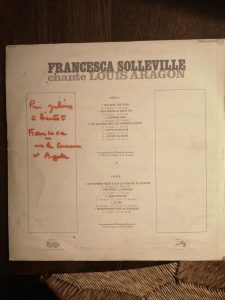
Shortly before Angela Davis’ final acquittal and release, ADDC was in the process of organising a massive rally in Trafalgar Square to protest at her continued incarceration. In the event, only a few days before the rally, we heard on the news that Angela Davis was being released. We turned the rally into a mass celebration of her release.
A few months later Angela Davis toured some of the countries where there had been solidarity campaigns. I had the privilege of meeting her, both when she visited our offices in North Gower Street and then at a party in a private house.
Praised by many Marxists and others on the left, Angela Davis has received various awards, including the Lenin Peace Prize. She was inducted into the National Women’s Hall of Fame. Davis was Time magazine’s “Woman of the Year” for 1971 in its 2020 “100 Women of the Year” edition.
She continued both her academic work and her domestic activism. In the 1980s she was Professor of Ethical Studies at San Francisco State University. Much of her work focused on the abolition of prisons and in 1997 she co-founded Critical Resistance, an organization working to abolish the prison-industrial complex, in which massive profits are made by private companies for the imprisonment of hundreds of thousands of prisoners, a disproportionate number of whom are Black.
During the 1970s she visited Marxist-Leninist-governed countries and during the 1980s was twice the Communist Party’s candidate for Vice-President. In 1991, following the dissolution of the Soviet Union, she left the party and joined the breakaway Committees of Correspondence for Democracy and Socialism. Also in 1991, she joined the feminist studies department at the University of California, Santa Cruz, where she became department director before retiring in 2008. Since then she has continued to write and remains active in movements such as Occupy and the Boycott, Divestment and Sanctions campaign.
First they came…
Many people are familiar with Martin Niemöller’s anti-fascist poem:
First they came for the socialists, and I did not speak out –
because I was not a socialist.
Then they came for the trade unionists, and I did not speak out –
because I was not a trade unionist.
Then they came for the Jews, and I did not speak out –
because I was not a Jew.
Then they came for me and there was no-one left to speak for me.
This resonates with the last two paragraphs from James Baldwin’s ‘Open letter to Angela Davis’:
“The enormous revolution in Black consciousness which has occurred in your generation, my dear sister, means the beginning or the end of America. Some of us, white and Black, know how great a price has already been paid to bring into existence a new consciousness, a new people, an unprecedented nation. If we know, and do nothing, we are worse than the murderers hired in our name.’
‘If we know, then we must fight for your life as though it were our own – which it is – and render impassable with our bodies the corridor to the gas chamber. For, if they take you in the morning, they will be coming for us that night.
